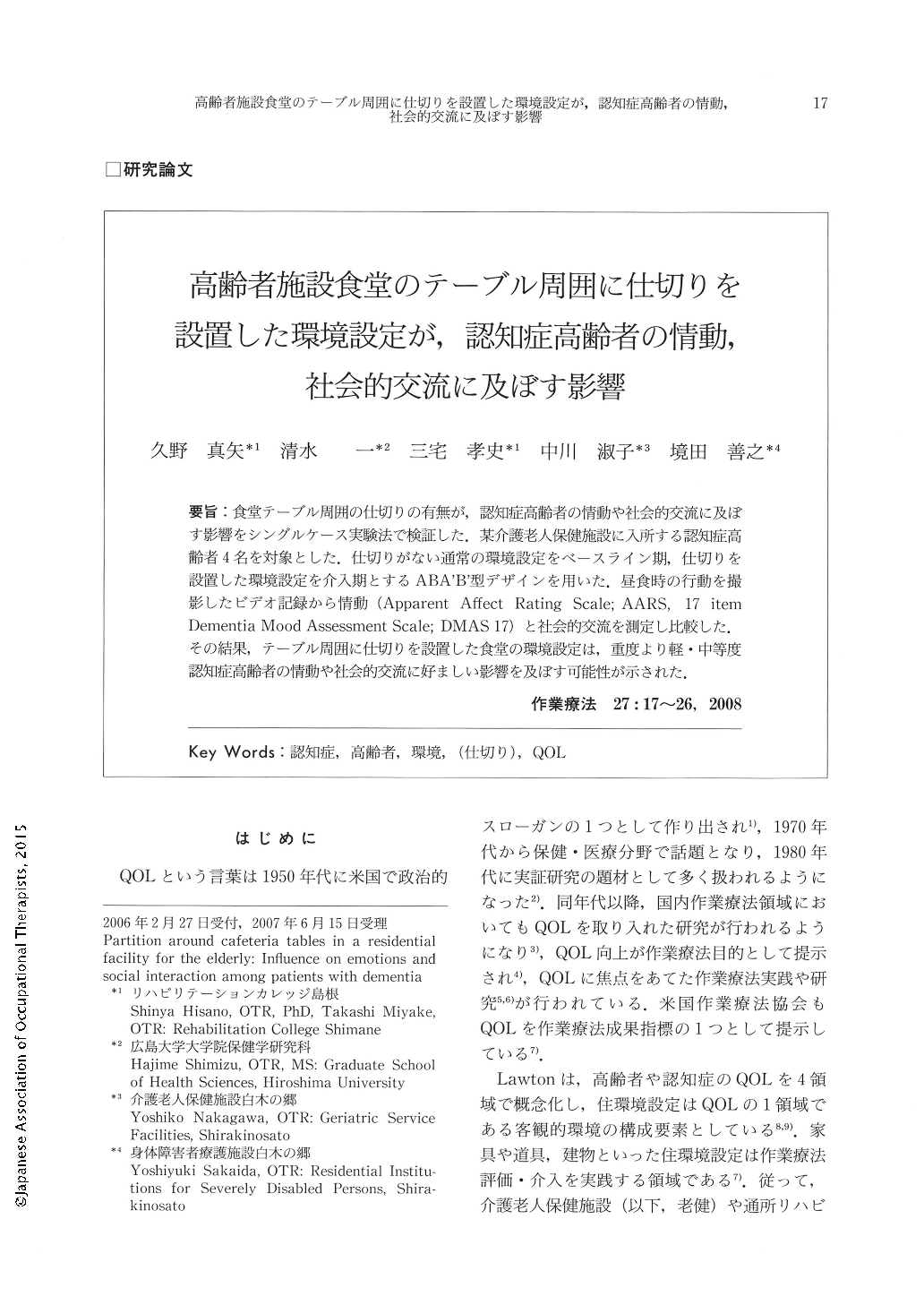Japanese
English
- 販売していません
- Abstract 文献概要
- 1ページ目 Look Inside
- 参考文献 Reference
- サイト内被引用 Cited by
要旨:食堂テーブル周囲の仕切りの有無が,認知症高齢者の情動や社会的交流に及ぼす影響をシングルケース実験法で検証した.某介護老人保健施設に入所する認知症高齢者4名を対象とした.仕切りがない通常の環境設定をベースライン期,仕切りを設置した環境設定を介入期とするABA'B'型デザインを用いた.昼食時の行動を撮影したビデオ記録から情動(Apparent Affect Rating Scale;AARS,17 item Dementia Mood Assessment Scale;DMAS17)と社会的交流を測定し比較した.その結果,テーブル周囲に仕切りを設置した食堂の環境設定は,重度より軽・中等度認知症高齢者の情動や社会的交流に好ましい影響を及ぼす可能性が示された.
In a residential facility for the elderly, we used a single-case design to examine the influence of partitioning of the space around cafeteria tables on the emotions and social interactions of patients with dementia. The subjects included four elderly residential patients with dementia. The ABA'B' design was used: during the baseline period (A) there was no partition; during the first intervention period (B) the partition was introduced; it was then removed for the second baseline period (A) and then reinstalled for the final intervention period (B). Emotion (Apparent Affect Rating Scale: AARS, 17 item Dementia Mood Assessment Scale: DMAS 17) and social interaction were measured and compared from still pictures of facial expressions. These stills were taken from videos of patients' behavior under each table configuration during lunch. No clearly significant differences were recognized in patient A, who had severe dementia. In patient B, who had an aggravation tendency and "anxiety/fear" on the AARS, showed a tendency to improve when the partition was used, and this patient's DMAS 17 showed improved "sense of enjoyment" and "positive interaction". During the intervention period, at least one item among the AARS score for "pleasure", the DMAS 17 score for "emotional responsiveness", and the "positive interaction" assessment was considered to have improved in patients C and D, who had mild to moderate dementia. Installation of a partition around the table was considered to have a potentially positive influence on the emotions and social interactions of elderly patients with mild to moderate dementia.

Copyright © 2008, Japanese Association of Occupational Therapists. All rights reserved.


